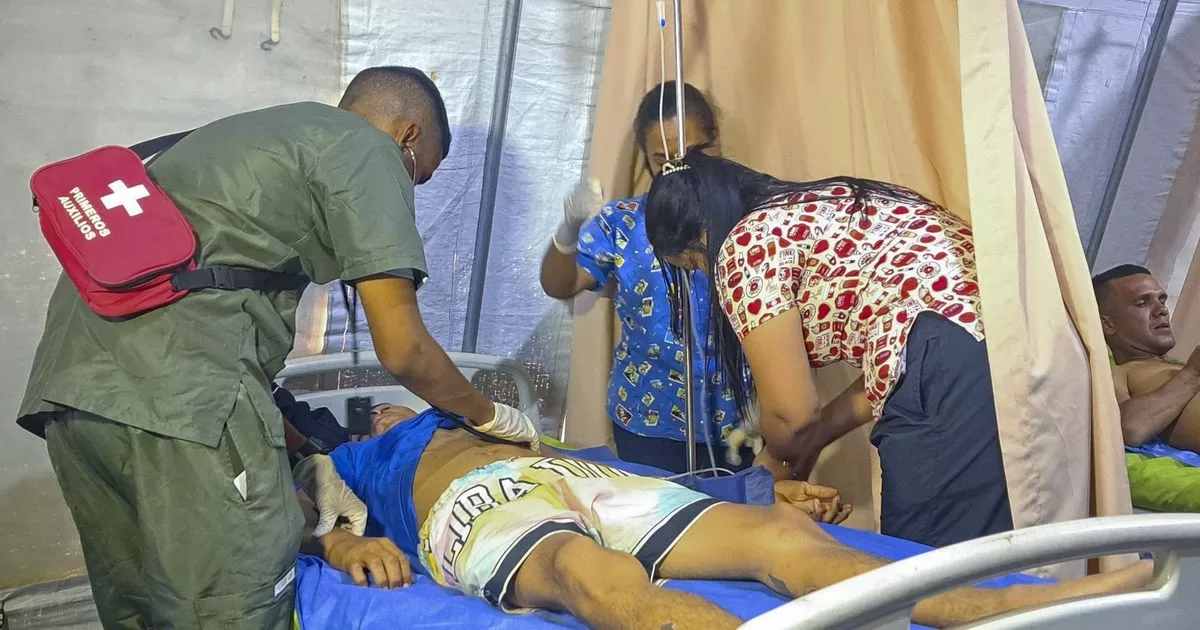At least 400 people, including 300 foreigners, are stranded in Aguas Calientes at the foot of the mountain with the Inca site. Visitors to Aguas Calientes “could not leave because the railway tracks are damaged in some places,” said Tourism Minister Luis Fernando Helguero.
Some tourists have decided to walk to Piscacucho, which is connected to the road network. However, that takes “six hours or more, and very few people can do that,” said the minister. In December, around 200 stranded tourists had already been flown out by helicopter from the region around the Inca ruins.
During the protests, access to Machu Picchu was repeatedly restricted. The operations of the nearby Cusco airport were temporarily suspended – after the reopening, travelers queued for their flights.
Demanded resignation of President Boluarte
Peru has been wracked by unrest since the ouster and arrest of leftist President Pedro Castillo on December 7. The protesters are demanding the resignation of his successor, Dina Boluarte, and the dissolution of parliament in order to hold new elections without delay. Dozens of people died in the wave of protests. A state of emergency has now been declared for almost a third of the country.
Another fatality reported
Another fatality was reported from the small town of Ilave in the southern Puno region on Saturday. A man was seriously injured during a protest on Friday and was hospitalized as a result, an official told the AFP news agency. He succumbed to his injuries on Saturday.
According to hospital reports, ten other people were injured in the clashes between members of the indigenous Aymara people and the police. The police crackdown on the protests so upset the demonstrators in Ilave that they set fire to a police station on Saturday morning, TV footage showed. A police station was also set on fire in Zepita, in the Puno region. Nobody got hurt.
Street battles between demonstrators and security forces broke out again in Peru’s second largest city, Arequipa. Protesters threw stones and lit fires around a bridge in an attempt to advance toward the temporarily closed airport. The security forces responded with tear gas grenades, as reported by an AFP photographer.
Multiple demands
In addition to Boluarte’s resignation, the protesters are demanding the dissolution of Congress and the release of imprisoned ex-President Castillo. The former teacher wanted to forestall a no-confidence vote in December and dissolved the congress. Parliament then removed him from office. He was arrested on charges of an attempted coup and is in custody.
New clashes at protests in Peru
The political crisis in Peru is getting more and more out of control: protests against the government across the country have again led to serious clashes. Many are demanding the release of the imprisoned ex-president. At least 45 people have already died.
Above all, indigenous people from the poor south of the country saw the dismissal as a blow from the old elites from the capital Lima on one of their own. Although Boluarte was Castillo’s vice president, she was later expelled from his Peru Libre party and distanced herself from the left in Congress.
Treason detected
After being sworn in as Peru’s first female president, she was quick to indicate that she intends to remain in office until the end of the 2026 parliamentary term. Many members of Congress supported their plan – probably in order to keep their seats in parliament longer. In her inaugural speech, the new head of state primarily sought support in Congress instead of trust among the electorate in the country.
It was clear to Castillo’s supporters in the south: Boluarte had stabbed her former boss in the back and was now also betraying the small farmers, day laborers and indigenous people who had once hoisted Castillo into office. Especially for the poor, the former farmer and trade unionist also had a great symbolic meaning: He stood for rural, indigenous Peru, which always felt despised by the European elites in Peru.
EU condemns continued violence
The EU condemned the ongoing violence in Peru and called on the authorities to quickly find a peaceful solution to the problems. An EU spokesman regretted the high number of victims since the protests began on Saturday. “Peaceful social protests that respect the rule of law are legitimate in a democratic society,” it said in a statement. However, the EU condemned “the widespread acts of violence” and “the disproportionate use of force by the security forces”.
“The EU calls on the government and all political actors to take urgent measures to restore calm and ensure a full dialogue involving civil society and affected communities (…),” it said. The EU welcomed the visit of the Inter-American Commission on Human Rights (IACHR) to Peru. This had called for an investigation into the suppression of the protests, as there were indications of “excessive use of force”.



